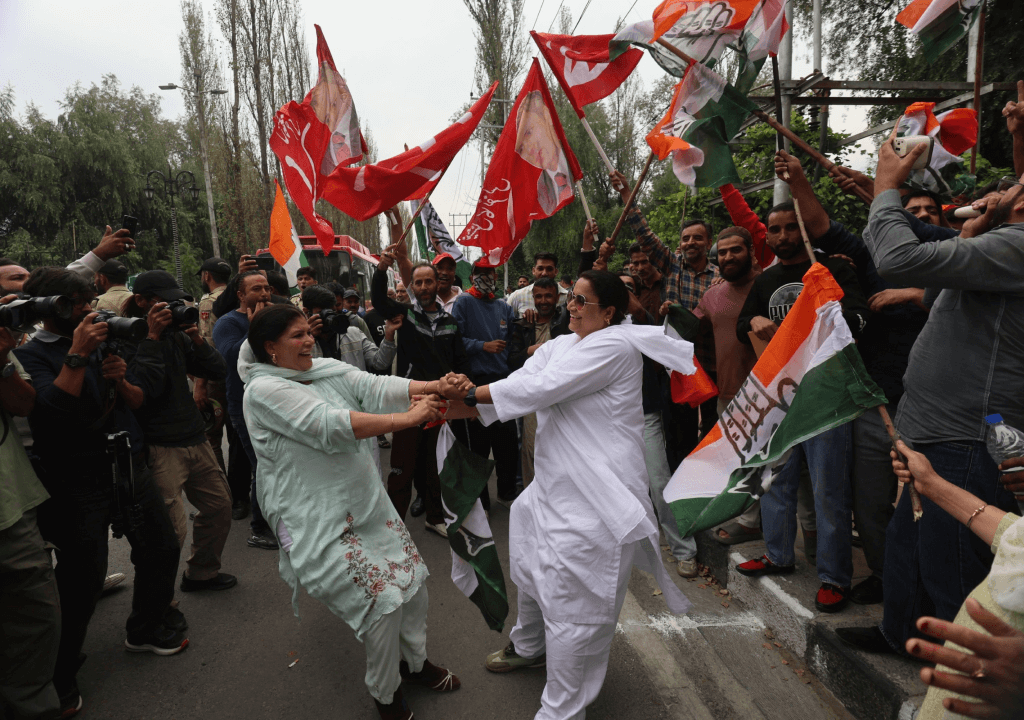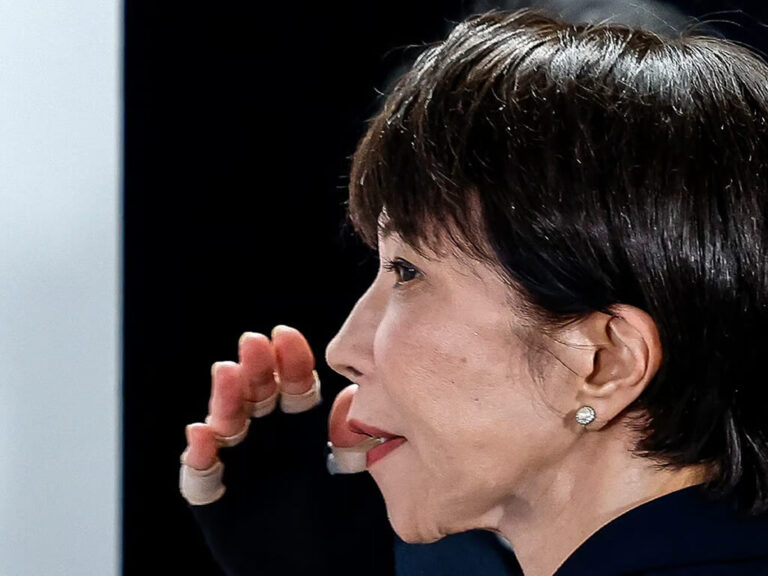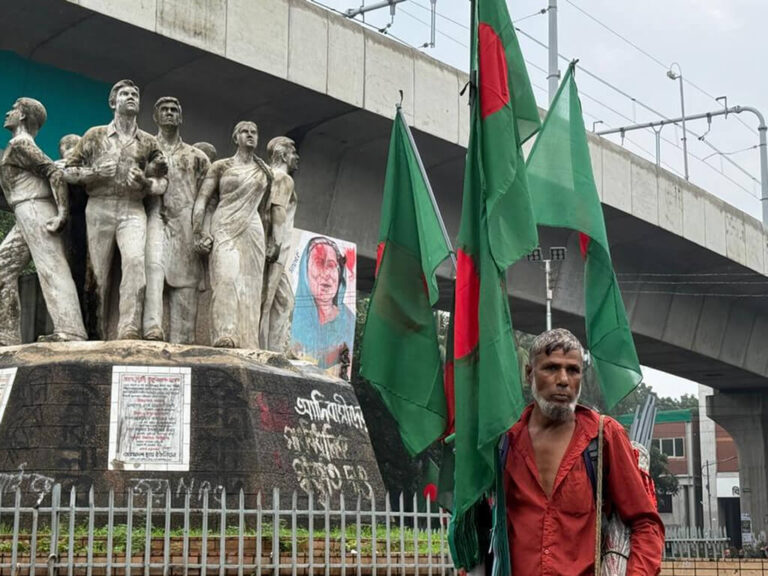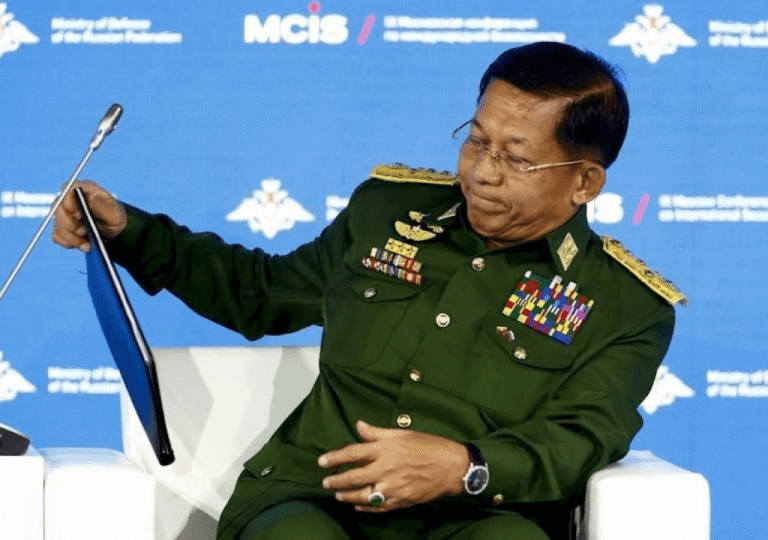India’s ruling Bharatiya Janata Party (BJP) has once again failed in its mission to conquer Jammu and Kashmir, a Muslim-majority state, as the people opted for an alliance between the region’s largest party, the National Conference, and India’s opposition party, the Indian National Congress, to form a government. Jammu and Kashmir, which elected its assembly after 10 years, will witness Omar Abdullah, the leader of the National Conference and a prominent figure from the Abdullah dynasty, returning to power. This marks a significant political win for the opposition INDIA alliance, strengthening its broader political strategy to weaken the BJP’s dominance in Indian politics.
The INDIA coalition, comprising the Jammu and Kashmir National Conference (JKNC), Indian National Congress (INC), and Communist Party of India (Marxist) (CPI(M)), secured a majority in the election, winning 49 of the 90 seats. While the BJP, which contested alone, improved its seat tally and vote percentage, it failed to reach the crucial majority and ended up with 29 seats. The Jammu and Kashmir People’s Democratic Party (PDP), another major regional party, faced significant humiliation, winning only 3 seats.
Elections were held in Jammu and Kashmir from 18 September to 1 October 2024, in three phases, to elect 90 members of the Jammu and Kashmir Legislative Assembly. The results were announced a week later, on 8 October 2024, with almost 63% voter turnout. This election holds significant importance as it is the first assembly election in over a decade and the first since the territory’s special status was revoked and its statehood withdrawn. Additionally, Jammu and Kashmir elections always attract international interest due to the region’s Muslim majority, which has historically leaned toward secessionism, often with support from Pakistan and China. The elections have been marred by terrorist attacks in the past, and this assembly election was similarly held under the threat of terrorism and insurgency.
The Bharatiya Janata Party (BJP), which has redefined Kashmir’s political landscape, did everything in its power to secure a majority in the state assembly, considering it a crucial objective. They poured significant resources into the region and carried out extensive infrastructure developments. No other state has received the level of attention from the BJP’s central government that Jammu and Kashmir has. The party also delimited constituencies in a way that was seen as favorable to them and introduced provisions such as granting nomination powers to the Lieutenant Governor. The BJP’s election strategy was clear: to maximize the number of seats from the Jammu division, which has a Hindu majority, while splitting the votes in the Kashmir division, which might favor the National Conference (NC)–Indian National Congress (INC) alliance, by supporting multiple independent candidates. However, this strategy failed. Although the BJP increased its vote percentage and number of seats in the Jammu division, it could not reach its target as other players, such as the National Conference, Aam Aadmi Party, and independents, gained ground. Meanwhile, the JKNC-INC alliance successfully prevented vote splitting.
At the same time, It’s a strong comeback for the Jammu and Kashmir National Conference (JKNC) and its leader Omar Abdullah, who is set to assume the Chief Minister’s post for the second time. He has been out of power for nearly a decade and was even humiliated by his loss in the parliamentary election conducted almost six months ago, where he was defeated by an independent candidate in a crushing manner. However, this time, the people of the Kashmir Valley rallied behind him, and he won from both seats he contested.
The resurgence of Kashmiri sentiment and the downfall of the People’s Democratic Party (PDP), which was the main challenger to the JKNC and its alliance with the Indian National Congress (INC), significantly contributed to the JKNC’s election victory. Despite the INC’s relatively poor performance—contesting 38 seats and winning only 6, a drop from 12 in the previous election—the dramatic collapse of the PDP, which won only 3 seats, down from 28 in the last election when it was the largest party, played a pivotal role.
Other national parties, like the Communist Party of India (Marxist), retained their only seat with Yusuf Tarigami’s victory, while the Aam Aadmi Party made its debut in Jammu and Kashmir by securing its first seat. Most local parties, except for the JKNC, faced a complete collapse in this election.
The victory of the JKNC, without any possibility of political maneuvering, is an undeniable setback for the BJP’s hard work. It is expected that the Jammu and Kashmir state government will increasingly clash with the central government, as JKNC and its leader, Omar Abdullah, hold policies and demands that are in stark contradiction to those of the BJP. The JKNC has always emphasized Kashmiri pride in contrast to the BJP’s pan-Indian vision. The JKNC demands the restoration of statehood, the reinstatement of the special constitutional status, and an end to BJP rule in the region, particularly through the Lieutenant Governor’s authority—none of which are likely to be accepted by the BJP.
As a result, political confrontations between these governments are expected in the coming days, although Omar Abdullah has referred to Prime Minister Modi as a gentleman and has expressed hope for a good relationship with the Union government.








